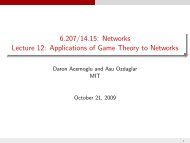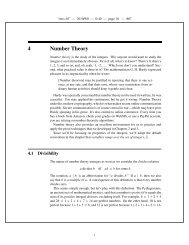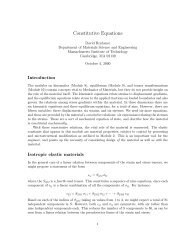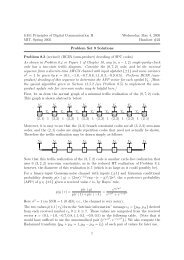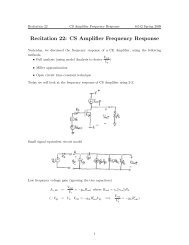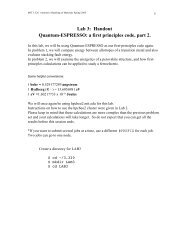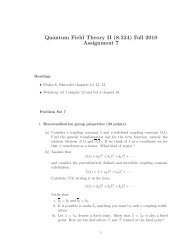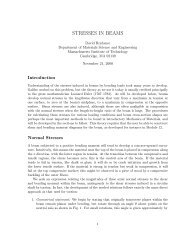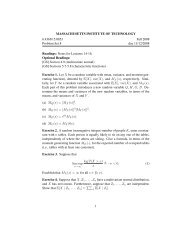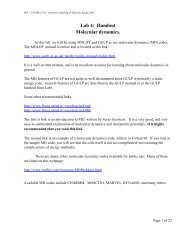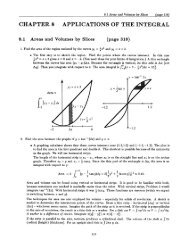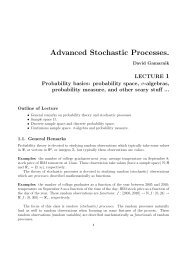Sophus Lie, the mathematician
Sophus Lie, the mathematician
Sophus Lie, the mathematician
Create successful ePaper yourself
Turn your PDF publications into a flip-book with our unique Google optimized e-Paper software.
differentiation). The solvability of this group is <strong>the</strong>n a necessary andsufficient for <strong>the</strong> equation to be solvable by quadratures. This has developedinto <strong>the</strong> subject differential algebra.<strong>Lie</strong>'s program (<strong>the</strong> first viewpoint indicated above) was continuedby a number of ma<strong>the</strong>maticians but partial differential equation <strong>the</strong>oryhas taken a different direction under <strong>the</strong> influence of functional analysis.There is not so much emphasis of determining <strong>the</strong> solutions but moreinterest in existence, uniqueness, smoothness properties etc. Thus onedoes not generally find <strong>Lie</strong> quoted in recent authorative works on partialdifferential equations. However on <strong>the</strong> side, <strong>Lie</strong> 's program:to studyindividual differential equations by means of <strong>the</strong>ir symmetry group isvery much alive and actively pursued in many quarters. For example<strong>the</strong> Korteweg-deVries equation ut + zuLz + u uz = 0 has a symmetryalgebra spanned by four vector fields, and this gives certain insight inproperties of <strong>the</strong> solutions [25]. Finding symmetry properties of suchgiven equations sometimes reduces to ra<strong>the</strong>r mechanical computationisand certain computer programs have been developed for this task. Thebooks [3], [25] provide a good introduction to this field. See also Ibragimov'slectures at this conference.It is also possible to turn <strong>Lie</strong>'s program around and take <strong>the</strong> <strong>Lie</strong>transformationgroup as <strong>the</strong> given object and study differential equationsand differential operators invariant under that, given group. Withglobal <strong>Lie</strong> group <strong>the</strong>ory so well developed this gives rise to a multitude ' :of natural problems, see e.g. [15, 16].<strong>Lie</strong> was a patriot and loved <strong>the</strong> mountainous beauty of Norway.It is good to recall that his country treated him with understandingand generosity, extending also to his widow after his premature death.The magnificent edition of his Collected Works, with all his papers completelyreprinted and furnished with thousands of pages of commentariesby Engel and Heegaard, financed jointly by <strong>the</strong> Academies in Oslo'andin Leipzig, is also a testimony to this generosity.<strong>Lie</strong> had high standards and was often, particularly after his mentionedillness, critical of o<strong>the</strong>r ma<strong>the</strong>maticians. Ma<strong>the</strong>maticians areoften poor historians- and do not always attribute accurately results<strong>the</strong>y use to <strong>the</strong>ir original sources. <strong>Lie</strong> was particularly sensitive to suchsituations and used <strong>the</strong> third volume of [23] to settle accounts. Hereone finds examples of tactless overreaction as well as examples of justifiedcriticism. While specific instances of this could easily be quoted



